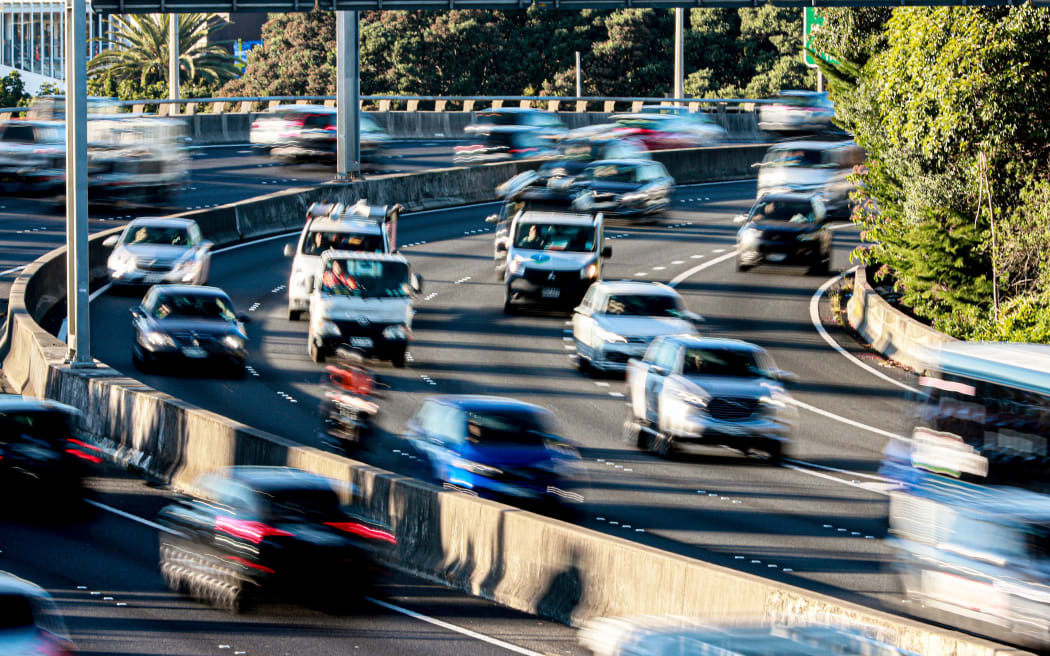
The academic behind the paper, University of Otago associate professor Caroline Shaw, says the government is heading in the wrong direction. Photo: RNZ / Marika Khabazi
The transport system kills thousands of people prematurely each year, and the government's new transport plan will only make that worse, an academic says.
Just days after the government halved transport funding for walking and cycling, new research has revealed prioritising them would improve overall population health, save the health system money and reduce health inequities between Māori and non-Māori.
The academic behind the paper, University of Otago associate professor Caroline Shaw, said the government was heading in the wrong direction.
"We are already killing thousands of people prematurely in this country every year because of air pollution, injury and physical inactivity from the transport system, and the policy settings we're looking to put in place will likely make that worse, as well as not actually reduce greenhouse gas emissions," Shaw said.

Otago University associate professor Caroline Shaw. Photo: SUPPLIED
Shaw's research modelled two of the Climate Change Commission's "possible transport pathways" designed to reduce emissions, and assessed the impacts on air pollution, injury and physical inactivity.
The first, 'behaviour change' focused on dropping the use of cars and boosting walking, cycling and public transport use, while the second, 'technology change' focused on electrifying vehicles.
"Both of them were better than the current transport system for health."
And the behaviour pathway was significantly better, Shaw said.
She also compared the behaviour pathway with other policies designed to improve health and found the benefits were on par.

Prioritising cycling and walking would improve overall population health, save the health system money and reduce health inequities between Māori and non-Māori, new research shows. Photo: RNZ / Bill Hickman
"The behaviour pathway is about on the same level as tobacco tax increases of 10 percent each year, or the health gain you'd expect from putting in place a tobacco free generation," she said.
The government's National Land Transport Plan would see the country miss out on those potential health gains, Shaw said.
Transport Minister Simeon Brown said the current government was committed to safe and efficient transport options.
"Kiwis rejected the previous government's transport plans which elevated forcing people out of their cars, slower speeds, and speed bumps over enabling people to get where they wanted to go quickly and safely," he said in a statement to RNZ.
"This government supports Kiwis getting where they need to go quickly and safely, and for the majority of people this will involve using a car."
Brown said the government would invest $6.4 billion in public transport as part of the National Land Transport Programme, and multiple major infrastructure projects are underway around the country.
He also said that the government hoped to increase the number of electric vehicle chargers through private investment in the network.
The research was funded by the Health Research Council - a Crown agency - and the University of Otago and published in The Lancet Planetary Health journal.






